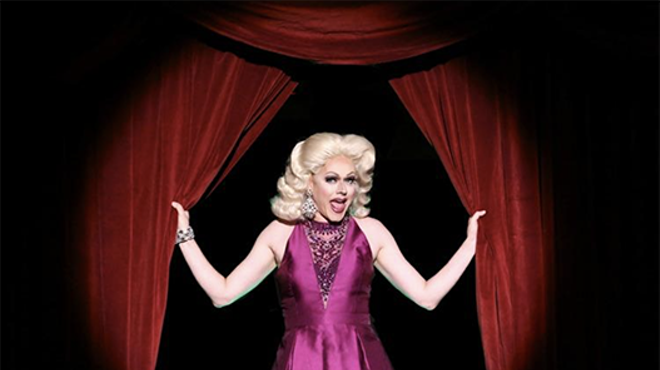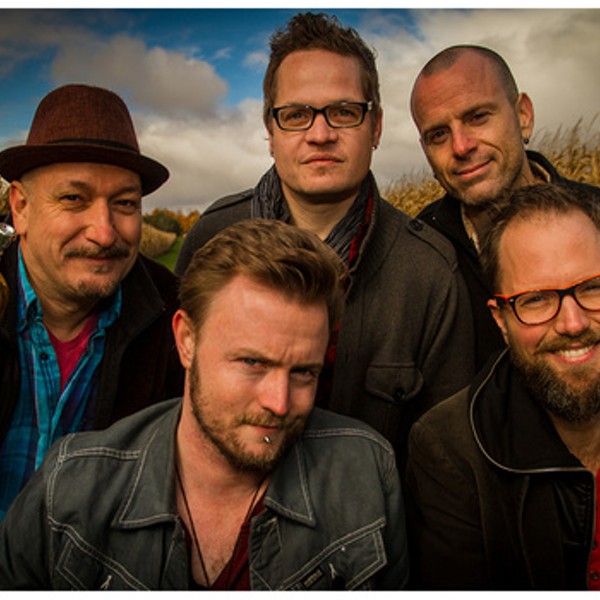Katie knows that playing with her dad is a first-rate music school that will prepare her for what lies ahead. Life on the circuit is hard, and few have learned how to endure it better than Kevin McKrell. “Kevin’s a survivor,” says fellow Irish bandleader and frequent-bandmate Rick Bedrosian. “Not everybody has made it this far just playing music full time. Kevin’s tough, both physically and mentally.”
“I don’t mind the work, and I still love the road,” he says. “It was the worry about keeping everybody else working. This unit is nice, no pressure. The motto of the band is, ‘If I turn around and you’re there, you’re there’ ”
At the Parting Glass, the band was Bedrosian on bass and Steve Butler on bodhran, the Irish hand drum. The crowd is a mix of fans and tourists, all seated at a long line of tables in front of the stage, eating, chattering, and drinking Guinness. Kevin has been dealt this hand before. “Saratoga in August,” he notes before heading to the microphone. “You got wankers who don’t know what’s going on, you got people here for the show. It’s gonna be a blood bath. You put your head down, and do what you can.”
Before the wankers know what’s happened to them, Kevin and Katie are charming the crowd with their strong tunes, solid voices, and wicked stage patter. They get the crowd’s heads turned towards the stage with Kevin’s Celtic rocker “Better Time,” then silence the clatter of silverware with a stunning version of “Somewhere Over the Rainbow.” Patrons stop in mid-bite and watch in awe. Still, not everyone is happy. A few tunes later, a sloshed onlooker in his late twenties is standing stage-left and shouting.
“Play something from the South!” he croaks repeatedly, apparently expecting to hear “Free Bird” or “Sweet Home Alabama.”
“The south?” Kevin replies finally. “Okay, this is something from County Cork.”
Given Kevin’s history, that heckler got off easy. Michael Eck, who logs considerable hours of his own on stage, recalls legendary stories from years ago where, in the middle of a song, Kevin dealt more directly with obnoxious audience members. “He’d walk off stage and punch someone and go right back and sing,” Eck reports.
Katie might have been inclined to play something from Dixie, judging from her musical role model. “I wanna be working and making the same amount of money as Stacy Earle,” she says with a smile. “That’s exactly what I want. I want to be wearing the same shirts from the same shops she went to in Nashville. We played with her, and I was like ‘uh huh, there’s me.’ She was so nice, so sincere, and so relaxed. She was sitting in her skin real nice, very centered. I do this ’cause I love it, but she’s pulling in the price. She’s a high-ticket item.”
It’s opportunities like that, to play with the likes of Earle, that make touring with her father so valuable, and have raised the stakes for Katie. “When you are playing with others, you want to make sure you are doing a good job, and not letting anyone down,” she says. “But I think it’s probably pretty rare that you love the people that you are working with. It has always been very important to me that I not let my parents down. So, when I get up on stage, both of those worlds collide and I feel that [pressure]. I am sure that it makes me a better musician in a hurry. But if I had to choose the worst thing, more like the hardest thing, it would be that.”
Working with your daughter can be just as tricky for a father. “I worry that she will not have developed the thick skin one needs to deal with our chosen profession,” Kevin says. “So I find I am a bit more protective than I might be of another band member.” Just how does a protective dad deal with those inevitable times his good-looking daughter attracts the usual attention from men? “She’s capable of dealing with most anything,” Kevin says firmly. “But we do have my years of bouncing in Saratoga and Albany bars to fall back on, should any trouble arise.”
















